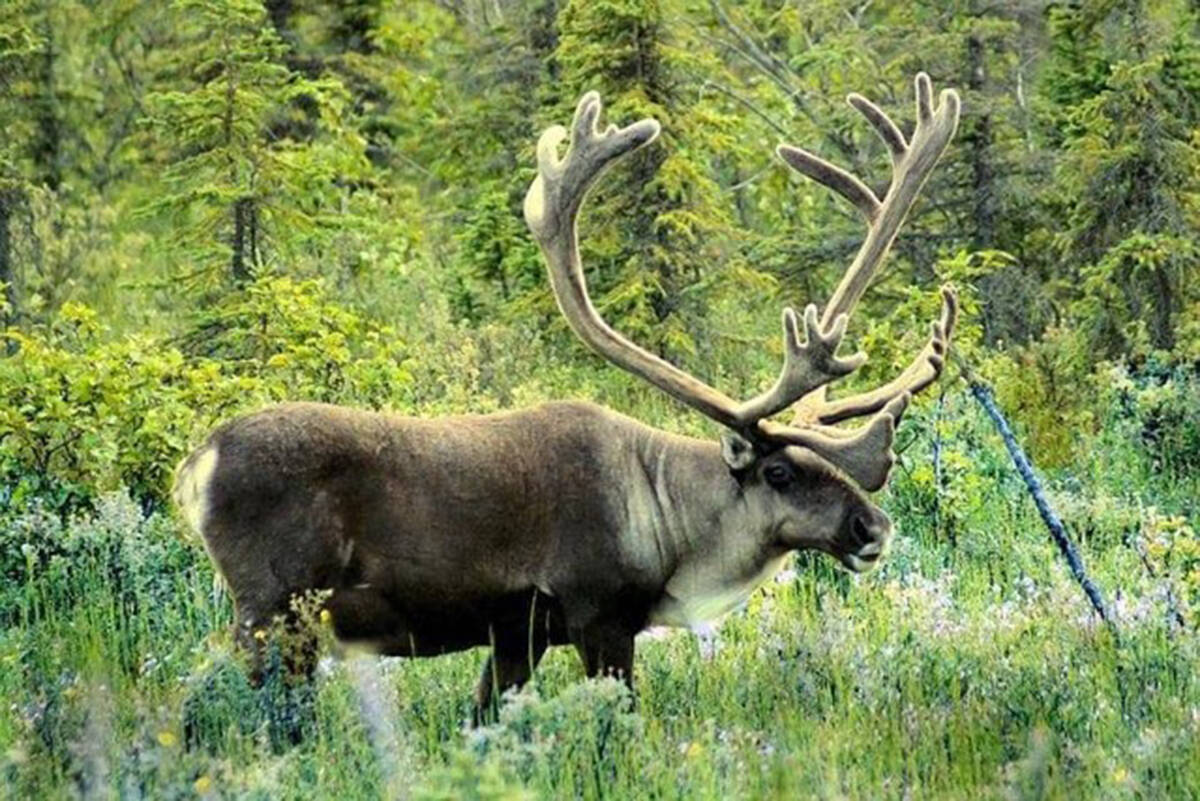Caribou herds in the Shuswap and surrounding areas were relatively undisturbed last year, with numbers remaining low but stable and overall compliance from motor-vehicle users reported.
The Frisby-Boulder herd, along with other herds that live on Mount Grace, Queest Mountain, the Monashee/Selkirk Mountains and Anstey Range were all mostly left alone by snow bikers, sledders and other mountain enthusiasts in 2022.
Conservation Officer Tanner Beck confirmed that last year, 13 boundary patrols were done on the caribou closure areas that have been in place in the North Okanagan Zone since 2006. On snowmobiles, conservation officers patrolled the closures and found some tracks entering the restricted areas on several occasions but never found any riders inside the areas at those times. Eighty-seven snowmobile users were contacted because of these patrols, and five violations and 19 written warnings were handed out. However, Beck said this is considered high compliance with the caribou closure areas and that most non-compliance notices actually came from offenses under the Off-Road Vehicle Act, driving where certain vehicles aren’t allowed.
The BC Ministry of Water, Land and Resource Stewardship agreed that compliance in regards to caribou conservation was high in the area, and that the herds, although some are small in numbers like the Frisby-Boulder herd, are healthy and well-protected.
The ministry considers the Frisby-Boulder herd functionally extirpated, which means its numbers are not high enough to be counted as existing within the geographical area and it no longer plays a significant role in the ecosystem. However, a 2020 survey counted six caribou in the area and in 2022, nine caribou were reported.
Disturbance from motorized vehicles like snowmobiles impacts caribou populations by causing chronic stress, affecting calf survival rates and making it easier for predators to find the animals. Snowmobile use can cause the herds to move away from their preferred habitats into areas that are less suitable and where food may be less available.
The province has an online map referencing snowmobile closures within mountain caribou recovery areas for further consideration.
The BC government created the Provincial Caribou Recovery Program in 2017 and invests into it over $10 million annually. The program works to protect, restore and manage habitats and enforce recreation rules in those areas. The program also supplies maternity pens and supplemental feeding in herds when necessary and will work to reduce wolf and cougar populations in some locations.
More information is available on the province’s website at the Provincial Caribou Recovery Program page.
READ MORE: Kelowna researcher supporting Splatsin efforts to save endangered caribou
READ MORE: 4 to 8 people use new emergency shelter in Salmon Arm for first few nights, opinions mixed
@willson_becca
rebecca.willson@saobserver.net
Like us on Facebook and follow us on Twitter and subscribe to our daily newsletter.

